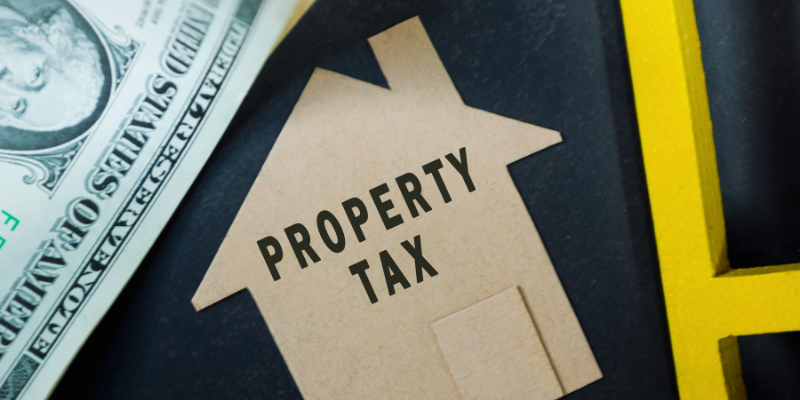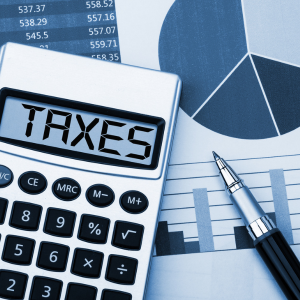
Understanding Property Tax Rates in Texas: a Comprehensive Guide
Homeowners and real estate investors in Texas, especially in places like Allen, need to know about property tax rates. In Texas, property taxes are based on how much a home is worth, which is determined by local assessment districts and changed every year.
The assessed values are used to figure out property taxes. The tax amount is set by local governments, school districts, and counties, among others. People who own property in Allen should know that tax rates can change based on the needs of each government agency and any changes that voters have passed.
There is no national property tax in Texas. Local governments instead collect their own taxes to pay for public services like roads, schools, and emergency services. In Allen’s competitive real estate market, homeowners and investors should keep up with their property’s assessed value and keep an eye on how local policies might affect future tax rates. This will help them make better choices.
Key Factors Influencing Property Tax Assessments
In Allen, TX, several important factors influence how property taxes are assessed, and being aware of them helps homeowners and investors manage their finances. One of the biggest factors is the appraised value of the property, which reflects its current market value as determined by the Central Appraisal District.
This value is directly affected by the local real estate market. When home prices go up, taxes can go up too. Another important factor is the tax rates that city leaders, school boards, and the county government set.
These rates can change if budgets or public votes change. Some homeowners may also be able to get tax breaks, like homestead or senior deductions, that lower the amount of money that the government taxes on their property. Also, improvements or changes to your home may make your assessed value go up after reassessment. Knowing these factors helps Allen property owners predict changes in taxes and make plans for them.
How to Calculate Your Property Taxes Effectively

The assessed value of your home and the local property tax rate set by taxing bodies like school and city districts are the two most important things you need to know to get an exact estimate of your Allen, TX property taxes.
First, find out how much your home is worth by calling the Collin County Appraisal District. This number is what the county thinks your home is worth right now on the market.
Then, gather the applicable tax rates from each taxing authority, which are typically listed as a percentage per $100 of assessed value. Multiply the home’s value by each of these rates to calculate your yearly tax bill.
Remember, exemptions—like the homestead or senior citizen exemptions—can lower the taxable portion of your home’s value. Keeping track of changes to local rates or reassessments helps you accurately forecast your property taxes and avoid surprises.
The Impact of Local Government Policies on Property Taxes
Local government policies in Allen, TX, have a direct impact on property tax rates, making them an important factor for homeowners and investors to follow. Decisions made by city councils, school boards, and county commissioners determine how much money is needed to run the community.
These funds support essential services like public schools, road repairs, police departments, and emergency medical response. When more funding is required—say, for a school renovation or new infrastructure project—it often results in higher tax rates.
For example, if Allen’s local government decides to expand its public amenities or improve services, property owners may see a rise in taxes to cover those costs. On the flip side, cost-cutting measures or new business development might stabilize or reduce taxes. Understanding how these decisions play into tax rates is key to predicting future expenses in Allen’s growing real estate market.
Exploring the Differences in Property Tax Rates Across Texas Cities
Knowing how property tax rates differ among Texas cities is vital when planning a move or investing in real estate. In Allen, TX, property tax considerations are a major part of financial planning, especially when compared to cities like Houston or Dallas.
Allen has its own blend of local tax rates and policies based on specific needs, including how much funding is required for schools and city services. Some cities may set higher tax rates to support more expansive services, while others offer lower rates to attract new development.
How properties are valued in your area also affects the actual tax load. There are also tax breaks in some places, like those for veterans or homesteads, that can lower the total cost of taxes. In the tough Texas housing market, buyers and investors can make smart, goal-aligned choices by comparing these factors across places.
Strategies for Lowering Your Property Tax Bill Legally
There are several legal ways for homeowners and investors in Allen, TX, to lower their property tax bills. One of the most effective is applying for exemptions—such as the homestead or senior exemption—which can cut down the taxable portion of your home’s value.
Also, you should pay close attention to how much your home is worth. You can appeal the price to the local appraisal district if you think it is too high compared to other houses in the area that are similar.
To strengthen your case, provide documentation like recent sales of comparable properties or photos showing any property issues. Be aware of how home improvements or renovations can affect your future tax assessments. Some property owners benefit from hiring a tax consultant to help with the appeal process. Being proactive and informed helps ensure you’re only paying what you truly owe—nothing more.
The Role of School Districts in Determining Property Tax Rates

This is especially true in Allen, where school systems have a big say in how much property taxes are. Local property taxes pay for everything at public schools, from a teacher’s salary to upkeep on the buildings.
Each year, the local school board reviews its budget requirements and proposes a tax rate that will meet those financial needs. If new funding is required—for example, to build new classrooms or update equipment—then the proposed rate may increase.
These proposed changes are usually voted on by the public or approved by city officials. On the flip side, budget cuts or alternate funding can keep rates steady or even lower them. Knowing how school funding is tied to your property taxes helps homeowners and investors evaluate the long-term affordability of owning or investing in properties within Allen ISD.
Navigating Property Tax Appeals: Tips and Best Practices
If you believe your property tax assessment in Allen, TX is too high, you have the right to file an appeal, and doing it right can save you money. Start by reviewing your assessment notice to understand the appraised value.
Get proof, like recent home sales in the area or third-party assessments, to show that your property may be worth more than it’s worth. Also, learn about the local market so you can point out any unfair differences.
The Collin County Appraisal District has due dates that you need to be aware of. If you miss one, it could hurt your case. When you put together your request, make sure it comes with a full packet of all the necessary paperwork. If you go to a hearing, make sure you know how to clearly explain your case.
If the process seems too hard, you might want to hire a property tax expert. If you know what to do, you can lower your tax bill and still follow all area rules.
Common Misconceptions About Property Taxes Debunked
Many property owners in Allen, TX fall into the trap of misunderstanding property taxes, which can lead to costly mistakes. One common myth is that property tax rates are locked in—but in reality, rates can change every year based on government decisions and budget changes.
Another mistake is thinking that the market value and assessed value of your home are the same. In some cases, though, exclusions or legal caps may make the amount that is taxed less.
Some people also think there’s no way to challenge an unfair assessment. The truth is, there’s a formal appeals process through your local appraisal district. Lastly, many overlook that property taxes fund vital services like schools and emergency response. When you understand the full picture, you’re in a better position to budget wisely and protect your investment.
Understanding Homestead Exemptions and Their Benefits
Texans who qualify can save a lot of money by filing for a homestead exemption. The taxable part of your home’s assessed value goes down because of this exemption. This means that your yearly property taxes will be cheaper.
To qualify, the property must be your primary residence, and you must apply through the appraisal district. Beyond saving money, a homestead exemption offers legal protections—for example, it can shield part of your home’s value from creditors and limit annual increases in assessed value.
It’s important for buyers to know that these exemptions don’t usually apply to second or rental homes. Still, it’s helpful to know how they affect market values and tax burdens when looking at Allen’s market for investment possibilities. At Ready House Buyer, we buy houses for cash in any condition and situation—no repairs, no delays. Contact us today to see how we can help.
How Economic Growth Affects Residential Property Taxes

Strong economic growth in Allen, TX can have a big impact on residential property taxes. As the local economy grows, housing demand often increases, driving up property values and, in turn, assessed values.
Values are going up because of things like new companies, better infrastructure, and more people living in the area. Even if the tax rate stays the same, tax assessments will always go up when land values go up.
Economic growth often increases the demand for public services such as schools and roads, which are typically funded by property taxes. As these services grow to support the community, they enhance local living conditions—but can also result in higher tax bills.
This close connection between economic development and rising tax obligations is an important factor for any homeowner or real estate investor to consider, especially in growing cities like Allen. At the same time, if you’re looking to sell quickly and avoid some of the financial pressures, we buy houses cash in Texas, offering a fast and hassle-free solution.
What Is the Property Tax in Allen, Texas?
The local government in Allen, TX sets the property tax rates, which are based on the estimated value of your home. This value is set every year by the Collin County Appraisal District. The rate that Allen property owners pay is usually about 2.9% of the property’s assessed value, but it can be different based on which taxing district you live in.
These include the city of Allen, Collin County, and the Allen Independent School District. Each district sets its own rate, and all are added together to determine your final bill.
If you’re looking to sell your house fast in Allen, understanding this financial breakdown is essential for setting a realistic budget—whether you’re buying, investing, or preparing your property for sale. Staying informed about rate changes and exemption opportunities can significantly lower long-term costs and help protect your investment.
How Much Are Allen County Property Taxes?
When buying or owning property in Allen, TX, understanding the local property tax rate is key. While Allen is part of Collin County, the tax rate you pay depends on the combined rates from the city, school district, and county.
As of the most recent figures, Allen’s total property tax rate averages around 2.16%, applied to your home’s appraised value. This figure includes all local taxing bodies and may shift from year to year due to new budgets or legislation.
Because of this variability, homeowners and investors need to stay informed about how these tax rates are calculated. Being proactive helps with budgeting and can even uncover ways to legally reduce what you owe.
What Is the Collin County Property Tax Rate?
Collin County, which includes Allen, TX, has a competitive tax structure that appeals to both residents and investors. The Collin County property tax rate is made up of several parts: the county’s base rate, along with additional taxes from local municipalities, school districts, and other service districts.
While the county itself sets a relatively moderate rate, your total tax bill may differ depending on where exactly your property is located and which districts apply.
For example, a home in Allen may have a higher effective rate than one in a neighboring city, even within Collin County. It’s important to check the latest figures and monitor changes each year. This knowledge helps property owners plan effectively and make informed investment decisions in the Allen real estate market.
How Do I Find Out My Property Tax Rate in Texas?
To check your property tax rate in Allen or anywhere in Texas, start with your local county appraisal district. In Allen’s case, visit the Collin Central Appraisal District’s website, where you can search your property by address or parcel ID.
This site provides details on your home’s assessed value and current tax rates from school districts, the city, and special districts. You can also contact the Collin County Tax Assessor-Collector’s office for help interpreting this information or to ask about exemptions you may qualify for.
Knowing exactly what you’re being charged—and why—helps homeowners control costs and allows investors to estimate returns more accurately.
Helpful Allen Blog Articles
- Top-rated Property Managers In Allen, TX
- Affordable Housing Options In Allen, TX
- Understanding Allen, TX, Property Tax Rates
- Explore Allen, TX: Free Activities And Real Estate Insights
- Understanding Allen, TX, Property Tax Rates
- Comprehensive Guide To Allen, TX, Neighborhoods
- How Safe Is Living in Allen, Texas?

| TAX BASED | TAXATION | TAX PAYMENT | TAX RATE | COLLIN COUNTY, TX | COLLIN COUNTY, TEXAS |
| INBOX | EMAIL MESSAGE | HIDALGO | HIDALGO COUNTY | HIDALGO COUNTY, TEXAS | |
| DENTON | TAX YEAR | MEDIAN | MEDIAN HOME PRICE | HOMEOWNERSHIP | OWNWELL |
| EMAIL ADDRESS | U.S. | PERCENTILE | DEDUCTIONS | PLANO | CALCULATOR |
| CALCULATION | TEXAS PROPERTY TAX |
